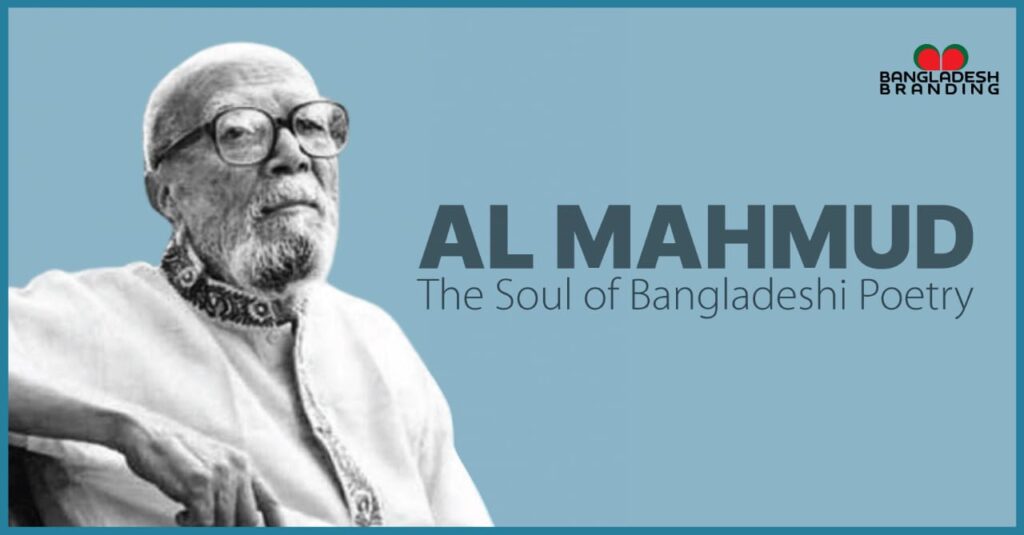Al Mahmud (1926-2005) was a prominent figure in the literary landscape of Bangladesh. Renowned for his innovative style and profound insights, he significantly shaped Bengali poetry in the 20th century
A Unique Voice in Bengali Literature
Al Mahmud’s poetry was characterized by its use of regional dialects, particularly those from the Chittagong region of Bangladesh. This linguistic choice allowed him to capture the essence of everyday life and the experiences of marginalized communities. His works often featured themes of love, loss, social injustice, and the complexities of human existence.
Early Life and Education
Al Mahmud was born on December 12, 1926, in the village of Fatikchhari, Chittagong, Bangladesh. He completed his early education at Fatikchhari Government High School. Afterward, he pursued higher studies at Chittagong College and Dhaka University.
Career and Literary Journey
Al Mahmud’s literary journey began in the 1940s. He was deeply influenced by the literary movements of his time, particularly the Chittagong Literary Circle. His early works were published in literary magazines and anthologies.
In the 1950s, Al Mahmud emerged as a leading figure in the modern Bengali poetry movement. His innovative style and use of regional dialects set him apart from his contemporaries. He published several collections of poetry, including “Ekhon” (Now), which is considered a masterpiece of modern Bengali poetry.
Al Mahmud’s career extended beyond poetry. He also wrote novels, short stories, and essays. His novel “Shomudrer Chhayay” (In the Shadow of the Sea) is a critically acclaimed work that explores themes of love, loss, and the human condition.
Notable Performances and Awards
Al Mahmud’s poetry has been widely translated into English and other languages. He has received numerous awards and honors for his contributions to Bengali literature, including:
- Bangla Academy Award (1965)
- Ekushey Padak (1994)
- Adamjee Literary Award (2000)
Legacy
Al Mahmud’s legacy continues to inspire and influence generations of Bengali writers. His poetry is celebrated for its lyrical beauty, social consciousness, and exploration of the human experience. He is considered one of the greatest Bengali poets of the 20th century.
Additional Information:
- Al Mahmud was a vocal advocate for social justice and human rights. He used his poetry as a platform to raise awareness about important issues.
- He was a mentor to many younger writers and played a significant role in shaping the literary landscape of Bangladesh.
Al Mahmud’s life and work continue to be studied and celebrated. His contributions to Bengali poetry have earned him a lasting place in the literary pantheon of Bangladesh.

